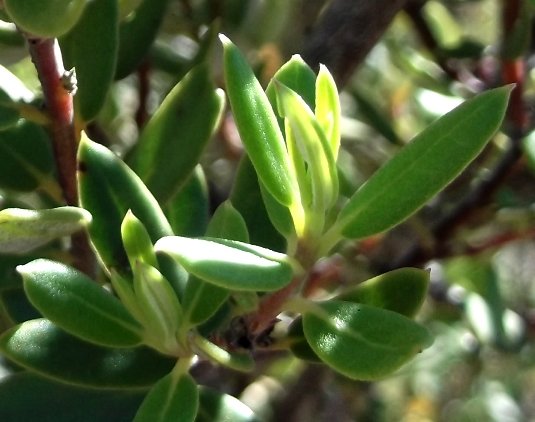Phylica oleifolia leaves

Author: Ivan Lätti
Photographer: Ivan Lätti
The leaves of Phylica oleifolia are spirally arranged and densely clustered near stem-tips on thick, short petioles, whitish in colour.
The leaf-shape is elliptic, tapering to an acutely pointed tip, sometimes with a drip-tip elongation added and rounded at the base. The leaf margins are entire and conspicuously rolled under. The leaf surface is dark green above, white from soft hairs below. Leaf dimensions are up to 2,5 cm by 1 cm.
The young leaves in picture appear fleshy with some glistening in surface cells. The cream coloured leaf midrib is conspicuous on both surfaces, above especially in its lower part and the spaced lateral veins much less so.
The specific name, oleifolia, refers to the similarity between these leaves and those of the olive tree. The Greek words elaia meaning olive tree and olea meaning an olive, as well as the Latin ones oleum meaning olive oil and folium meaning leaf feature in the explanation of the name (Coates Palgrave, 2002; iNaturalist).

